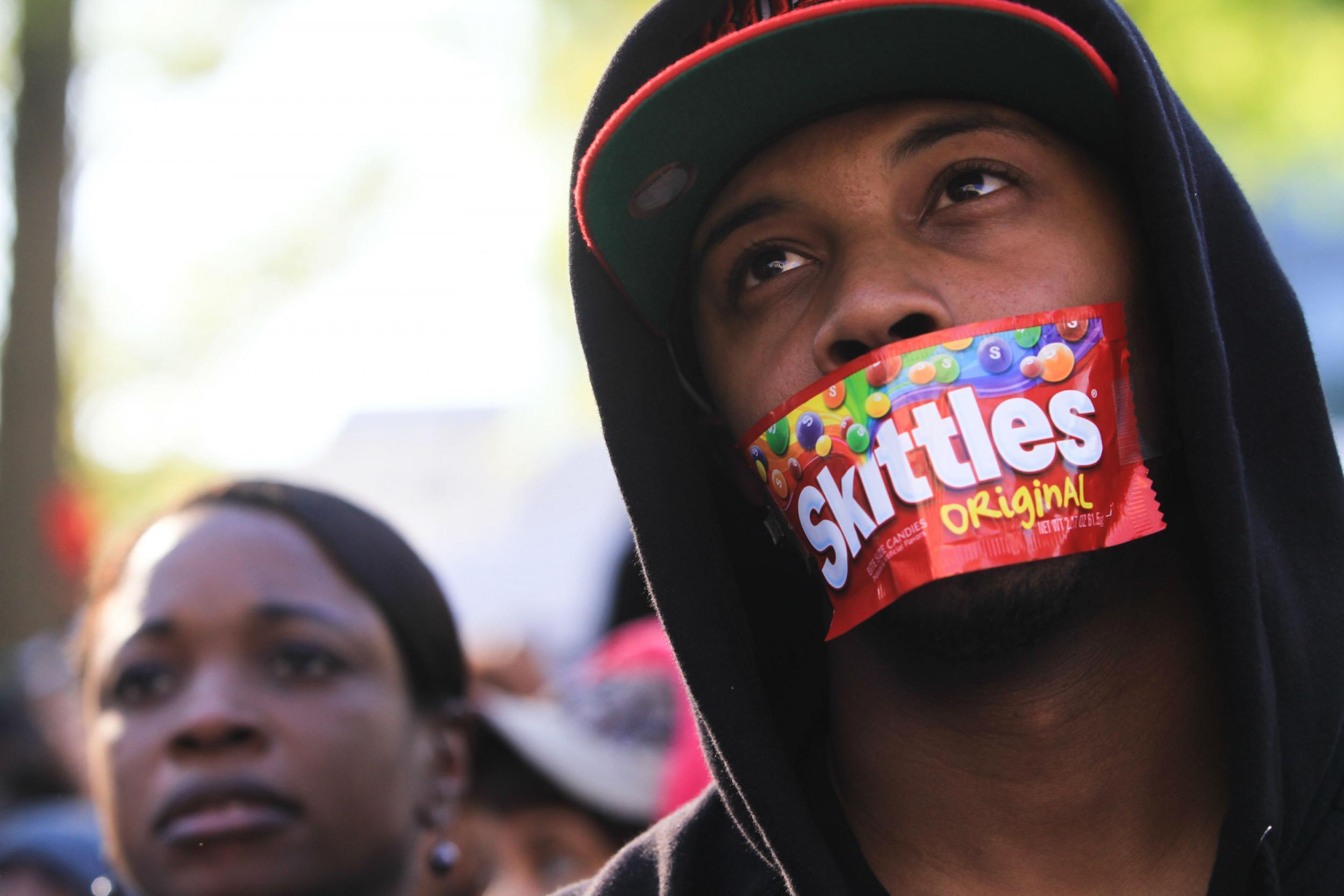How Donald Trump Jr’s ‘Skittles’ comment has a history as a racist dogwhistle that goes back to the Nazis
It started with poisoned mushrooms, changing over time into sweets before finding its final form after the death of an innocent black teenager in 2012

Your support helps us to tell the story
From reproductive rights to climate change to Big Tech, The Independent is on the ground when the story is developing. Whether it's investigating the financials of Elon Musk's pro-Trump PAC or producing our latest documentary, 'The A Word', which shines a light on the American women fighting for reproductive rights, we know how important it is to parse out the facts from the messaging.
At such a critical moment in US history, we need reporters on the ground. Your donation allows us to keep sending journalists to speak to both sides of the story.
The Independent is trusted by Americans across the entire political spectrum. And unlike many other quality news outlets, we choose not to lock Americans out of our reporting and analysis with paywalls. We believe quality journalism should be available to everyone, paid for by those who can afford it.
Your support makes all the difference.Donald’s Trump Jr's controversial comparison of Syrian refugees with a bag of Skittles sweets has provoked outrage and distaste. Yet for those who know their right-wing memes it is nothing new, channeling as it does the killing of Trayvon Martin in 2012 and echoing Nazi propaganda.
This week, the presidential candidate’s son posted an image on Twitter that said: “If I had a bowl of skittles and I told you just three would kill you, would you take a handful? That’s our Syrian refugee problem.”
The comment came a day before a pioneering United Nations summit in New York about the plight of Syrian refugees. But the comparison with sweets longstanding associations.
More than four years ago, a black youth called Trayvon Martin was shot dead by neighbourhood watch coordinator George Zimmerman.
The 17-year-old was found carrying a cigarette lighter, earphones, a can of watermelon fruit juice, a small amount of cash and a packet of Skittles.
Zimmerman claimed he had shot the boy out of "self-defence".
The brand's slogan, “Taste The Rainbow”, became a symbol of the teenager’s innocence.
Protesters mailed bags of the sweets to Bill Lee, chief of the Sanford police department. They waved pictures of the sweets like flags and hung them around their necks.
The killing sparked international outrage and spurred the Black Lives Matter campaign to become an important national movement, critical for raising awareness about the deaths of so many young black men at the hands of police officers.
But before Skittles became a symbol for lost innocence, the poisoned candy of choice for right-wing commentators was M&Ms, used as a way to make flawed generalisations about ethnic minorities.
In the 1940s, Nazi newspaper founder Julius Streicher wrote a book about the "poisoned mushroom" to indocrinate children in hate, referring to Jews "springing up in every country".
“Just as poisonous mushrooms often lead to the most dreadful calamity, so the Jew is the cause of misery and distress, illness and death,” he describes a mother telling her child.
Mr Trump has come under fire over the years for his remarks about civil rights. Shortly after the wrongful conviction of the five black and Hispanic boys who were accused of raping and beating investment banker Trisha Meili in 1989, Mr Trump took out a full-page advert in several newspapers, calling for the death penalty.
This is not the first time Donald Trump’s campaign has attempted to hijack worrying symbols for the election trail.
Most recently the candidate, his son and close advisers posted images of Pepe the Frog, adding yellow hair to liken the cartoon amphibian to the Republican. Since late last year, the green cartoon has become associated with the white supremacist movement.
The candidate was also criticised for tweeting an image of Hilary Clinton, calling her the "most corrupt candidate ever". The words were written inside the shape of a star, which was described by critics as an anti-semitic use of the Star of David and also associated with white supremacy.
Wrigley, the owner of Skittles, has distanced itself from Mr Trump’s remarks.
"Skittles are candy. Refugees are people. We don't feel it's an appropriate analogy," vice president of corporate affairs Denise Young said in the statement.
"We will respectfully refrain from further commentary as anything we say could be misinterpreted as marketing."